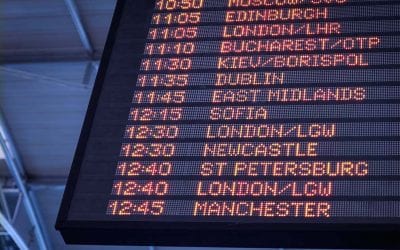Airline passengers are “worth” different amounts of money in various countries and states. The value of life varies depending on where the case is brought to court.

Here are the value of life figures (in US$) presented at a recent legal conference. These values are based on an average 45-year-old wage earner leaving behind a partner and one teenage child. I have ranked them from the most valuable to the least assigned value to life. The results are instructive. (These figures are four years old. However, these statistics are used only for comparison of life “values” in different countries.)
The value of life varies depending on where a wrongful death case is filed.
USA about $5,000,000
Brazil $2,500,000
Canada $1,700,000
France $1,400,000
Australia $1,400,000
UK $1,250,000
South Africa $1,100,000
Asia $250,000
Different valuations on the worth of a life on a country-by-country basis also exist within the United States on a state-by-state basis. For instance, in the Continental/Colgan Air crash in Buffalo, NY, back in February 2009, different jurisdictions applied to various portions of the legal case. The damages assessed by multiple states are far different from federal values.
Federal laws prevail in the US for safety issues, but state laws prevail for punitive damages.

However, for punitive damages, state law would prevail. That meant the case should be held in Virginia, the home of the operating carrier, or in New York, the scene of the crash. The stakes were massive. Virginia has a total punitive cap on damages of $350,000. New York has no cap. You can imagine where the airline wanted to hear the case and where the plaintiff’s lawyers wanted to hear the case.

Boston Federal Court House
Determining where to hear a case makes a dramatic difference in the settlement.
Making matters more complex, passengers on the doomed flight were from five states — Connecticut, Florida, New Jersey, New York, and Pennsylvania. Each state’s choice-of-law rules were then examined.
In the end, New York was determined to be the place with the most significant relationship to the crash of Flight 3407. Therefore, New York law governed the punitive damages.
Interestingly, those international passengers flying under the Montreal or Warsaw Conventions could not recover any punitive damages.
It is a real battle when international law clashes with US state, local, and federal law.
In this complex world, airline law intersects with international law. There can be very different outcomes solely based on where the cases are heard. That’s why the initial stages of legal claims are essential. Determining the proper jurisdiction is of paramount interest. It will shape the final financial compensation received by victims.
This value of human life also affects whether an insurance company will pay for expensive end-of-life and other treatments. The threshold ranges from $50,000 to $130,000 per year of “quality-adjusted” life. These figures are becoming more and more important for everyone. Medicare and Medicaid now look at what procedures are permissible under their systems.
More simply, insurance companies calculate that to make a treatment worth its cost, it must guarantee one year of “quality life” for $50,000 or less. New research, however, would argue that that figure is far too low.
…
Considering both inflation and new technologies in dialysis [a team of researchers at Stanford] arrived at $129,000 as a more appropriate threshold for deciding coverage. “That means that if Medicare paid an additional $129,000 to treat a group of patients, on average, group members would get one more quality-adjusted life year,” the Stanford Graduate School of Business team says.

MORE FROM TRAVELERS UNITED:
TSA banned items that security fails to detect will blow your mind
Why can foreign transaction fees apply here in the USA?

Charlie Leocha is the President of Travelers United. He has been working in Washington, DC, for the past 14 years with Congress, the Department of Transportation, and industry stakeholders on travel issues. He was the first consumer representative to the Advisory Committee for Aviation Consumer Protections appointed by the Secretary of Transportation from 2012 through 2018.



